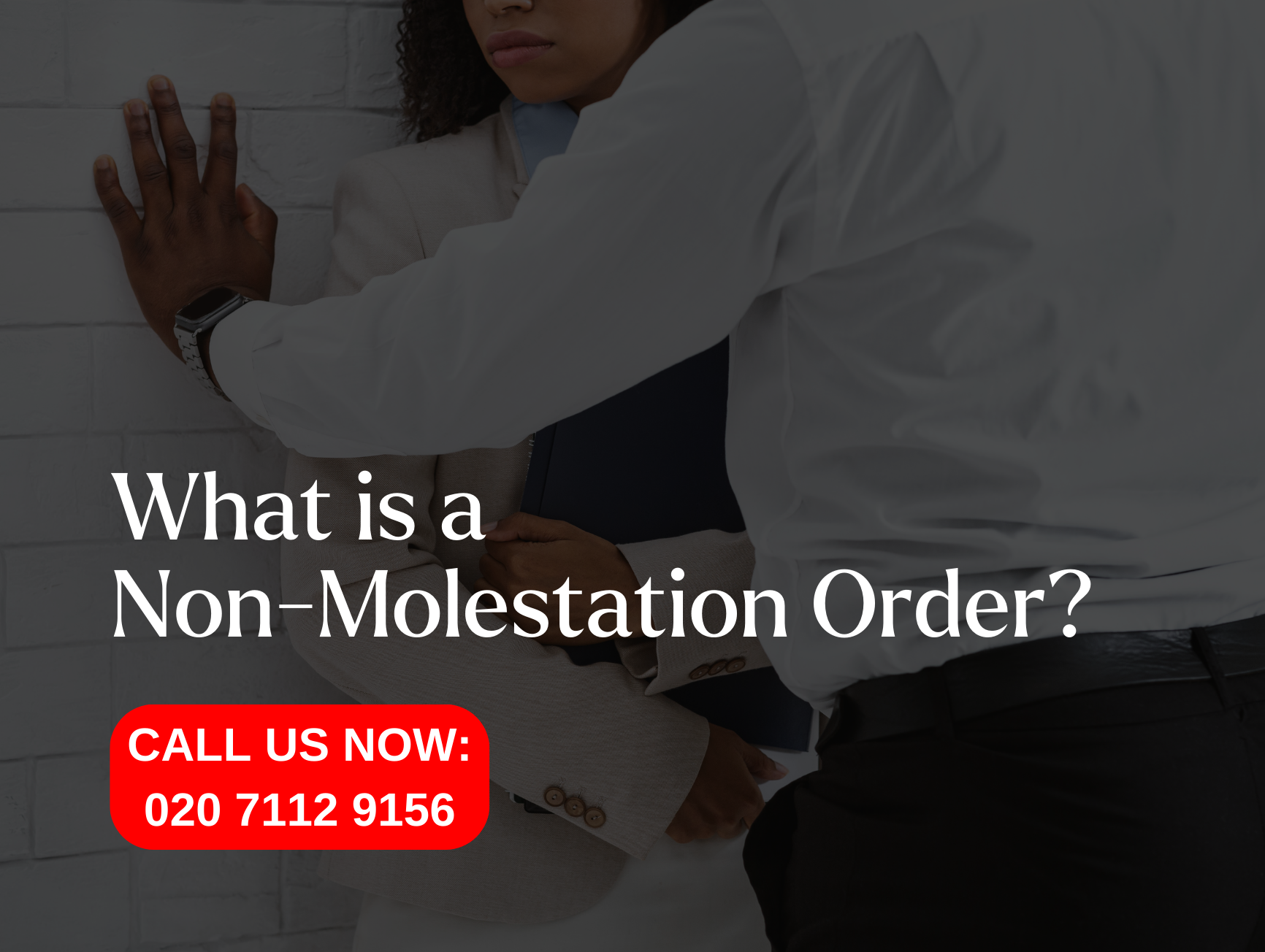Non-Molestation Orders
Protecting You and Your Children
If you are in an abusive relationship, your primary concern is likely the safety of yourself and your children. No one should have to endure such fear, and if you believe you or your children are at risk from a partner or former partner, you can apply to the courts for a non-molestation order.
In cases of immediate danger, always contact the police first. However, a non-molestation order can provide ongoing protection, ensuring your safety and that of your children in the future.
Obtaining a non-molestation order can be straightforward if you understand the process and your requirements. In this guide, we will walk you through everything you need to know, so you can confidently apply for the order and ensure a safe, happy life for you and your children.
What is a Non-Molestation Order?
A non-molestation order is a legal injunction issued through the family court to prevent a partner, former partner, or other “associated person” from causing harm to you or your children. Harm encompasses physical harm, harassment, intimidation, psychological abuse, threats of physical harm, coercive control, and financial abuse.
These orders can be applied against:
- Spouses or ex-spouses
- Civil partners or former civil partners
- Fiancés or ex-fiancés
- Family members
- People you live with or have lived with
- The parents of your children
Non-molestation orders are serious, with breaches constituting a criminal offence, potentially leading to arrest and up to five years in prison.
Duration of a Non-Molestation Order
Non-molestation orders typically last between 6 and 12 months, though they can be extended if circumstances haven’t changed and you still feel unsafe.
How to Apply for a Non-Molestation Order
You can apply for a non-molestation order yourself, but the process involves filling out a FL401 form, which is over 20 pages long and requires a witness statement. Seeking legal advice is advisable to avoid mistakes that could delay your application and to understand the merits of applying without notifying the other party.
There is no court fee for this application, and you can submit it via email, provided all documents are signed and include supporting evidence.
Discharging a Non-Molestation Order
You can ask the court to discharge the order by writing to them, explaining why you believe it should no longer be in place. A family court judge will decide whether to discharge the order based on the application.
The Simplicity of Getting a Non-Molestation Order
The process is often simple, but delays may occur if the judge is unclear about the merits of your application. Bring as much evidence as possible, including detailed descriptions of past harm, its effects on you and your children, and any police or medical records. This will facilitate a quicker court decision.
What Happens in Court?
Non-molestation cases are heard in Family Court, attended only by those directly involved. You can bring your solicitor but may not be able to bring a friend for support. The judge will review all statements and evidence before deciding whether to grant the order, potentially requesting further evidence.
Court procedures vary by region, with some courts handling applications on paper, some via remote hearings, and others requiring attendance. The court will inform you if you need to attend in person.
Challenging a Non-Molestation Order
If you believe you have been falsely accused, you have the right to challenge the claims. Consult your solicitor to understand your rights and the process for challenging the order. The order should provide details on how to challenge it, and a hearing date will be set for your views to be heard.
Confidentiality of Your Application
You can apply for a non-molestation order without your partner knowing, known as an “ex-parte” or “without notice” application, useful for urgent protection or situations where informing your partner might increase your danger.
This temporary order requires a second hearing where your partner can present their views. If they contest the order, further evidence may be requested, potentially delaying the final order.
Costs and Timeline
Non-molestation orders have no court fees. The process usually takes a few weeks, but emergency applications can be made the same day without your partner’s presence, providing immediate protection once served.
Serving the Non-Molestation Order
Efforts are made to serve the order on the abuser in person. If other methods are permitted, it will be noted on the order. Orders should be served promptly, usually by a process server, who will confirm the service date and time.
Breaching a Non-Molestation Order
Breaching a non-molestation order is a criminal offence, often resulting in police intervention and potentially a prison sentence for serious breaches. If you feel threatened, call the police immediately.
We’re Here to Help
At Fahrenheit Law, we understand the gravity of applying for a non-molestation order and the fear you may feel for your safety and that of your children. Our expert team is here to support you through the process, helping you gather all necessary evidence to expedite proceedings and secure the protection you need.
Our solicitors are always ready to provide expert legal advice, ensuring you never have to feel unsafe due to a partner again. Contact us today to discuss your situation.
Book an Appointment
Make an Appointment
Time
Booking Details
Date & Time: Service Price + Staff Cost $ 00.00




